STVFORUM | Chen Baoguo: “Vitality of TV Dramas Relies on Scripts”
Every outstanding TV drama opens a window for audiences to observe characters’ destinies and social emotions - behind which lies television professionals’ persistent dedication and reflection. On the afternoon of June 23, the MasterClass with Chen Baoguo, Jury President of the TV Drama section for the 30th Shanghai TV Festival’s Magnolia Awards, was held at the Shanghai Exhibition Center.
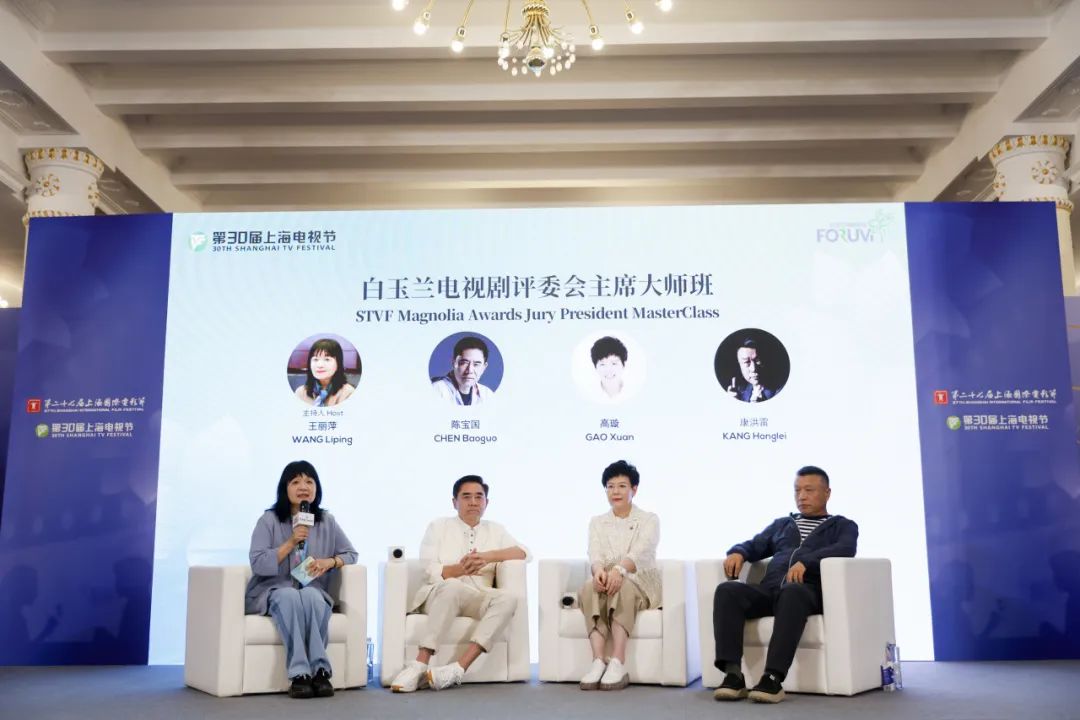
Chen Baoguo, renowned actor and this year’s jury president, emphasized the paramount importance of scripts by citing his iconic works like The Grand Mansion Gate, Ming Dynasty 1566, and The Legendary Tavern: “For TV dramas to maintain their vigorous vitality and for this art form to progress, it all hinges on scripts.” Fellow jury member and screenwriter Gao Xuan echoed this, stressing that improving TV drama quality begins at the creative step: “We must truly understand society and immerse ourselves in every profession and character - only then can great works emerge.” Director Kang Honglei, also a jury member, expressed hopes for more diverse narratives: “Beyond emotional storytelling, I encourage writers to explore broader horizons.”
The session was moderated by Wang Liping, Vice Chair of China Television Artists Association and celebrated screenwriter.

This Year’s Nominees Represent “A New Generation of Chinese TV Drama”
As the winner of the Magnolia Award for Best Actor (The Chinese Old Peasant and The Legendary Tavern) for two editions and a frequent nominee, Chen revealed he had spent over 20 days binge-watching submissions, often involuntarily glued to the screen until 3-4 a.m. As for assessing this year’s entries, he acknowledged unprecedented pressure due to their collectively high caliber and representativeness: “This is no ordinary year – it’s an exceptional one, making judging intensely challenging.” He proposed that if Chinese TV drama were categorized by generations, these nominees would undoubtedly mark the rise of a new creative wave.
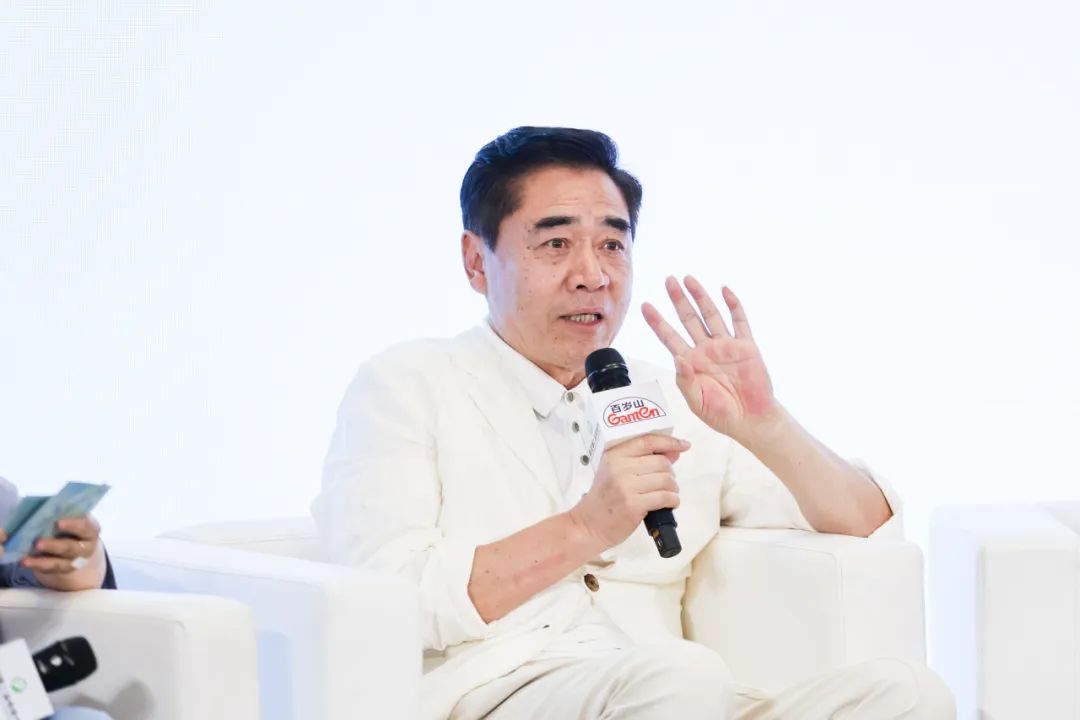
Veteran screenwriter Gao Xuan, a frequent Magnolia Awards nominee and winner of the 29th edition’s Best Original Screenplay award for Imperfect Victim, explained this “new generation” label: “Younger audiences with evolving tastes demand more diverse storytelling - forcing writers to accelerate their creative evolution.” She noted younger screenwriters excel at “syncing with contemporary rhythms and engaging with audiences today”, urging all creators to “actively mine online discourse to update their creative toolkit. It’s become a necessary task for writers, directors, and actors alike.”.
Director Kang Honglei (renowned for patriotic dramas like A Passionate Life, Soldiers Sortie, and My Chief and My Regiment) observed: “These nominees demonstrate young creators’ multi-dimensional prowess - from aesthetic vision to their nuanced treatment of national and humanistic themes. Their mastery of high-stakes narratives and conflicts represents a gratifying generational leap.”
“An actor speaks through their roles, and roles are born from scripts”
Even as new dramas emerge, audiences continue to revisit classic series with undiminished enthusiasm, sparking endless creative fan-made videos. Chen Baoguo attributes this enduring appeal to the power of writing: “Actors speak through roles, and roles are born from scripts - the writing matters the most. The industry needs great scripts, we actors and directors crave them even more, and audiences absolutely deserve them.”

Chen recalled his first encounter with The Grand Mansion Gate script over twenty years ago - “a once-in-fifty-years masterpiece” - counting the role as extraordinary luck. Yet he emphasized that actor-character chemistry is a two-way street. Early in his career, he faced a choice: playing the restrained intellectual eldest son in New Four Generations Living Together, or the vicious street thug in the film The Magic Braid. He unhesitatingly chose the latter - “refined roles come often, but monsters? Maybe once a lifetime.” His six collaborations with screenwriter Gao Mantang likewise rank among his career’s greatest blessings. Speaking of rare perfect roles, Chen half-jokingly pleaded: “My hunger to act has never been fiercer. But scripts for my age are scarce - please write more!”
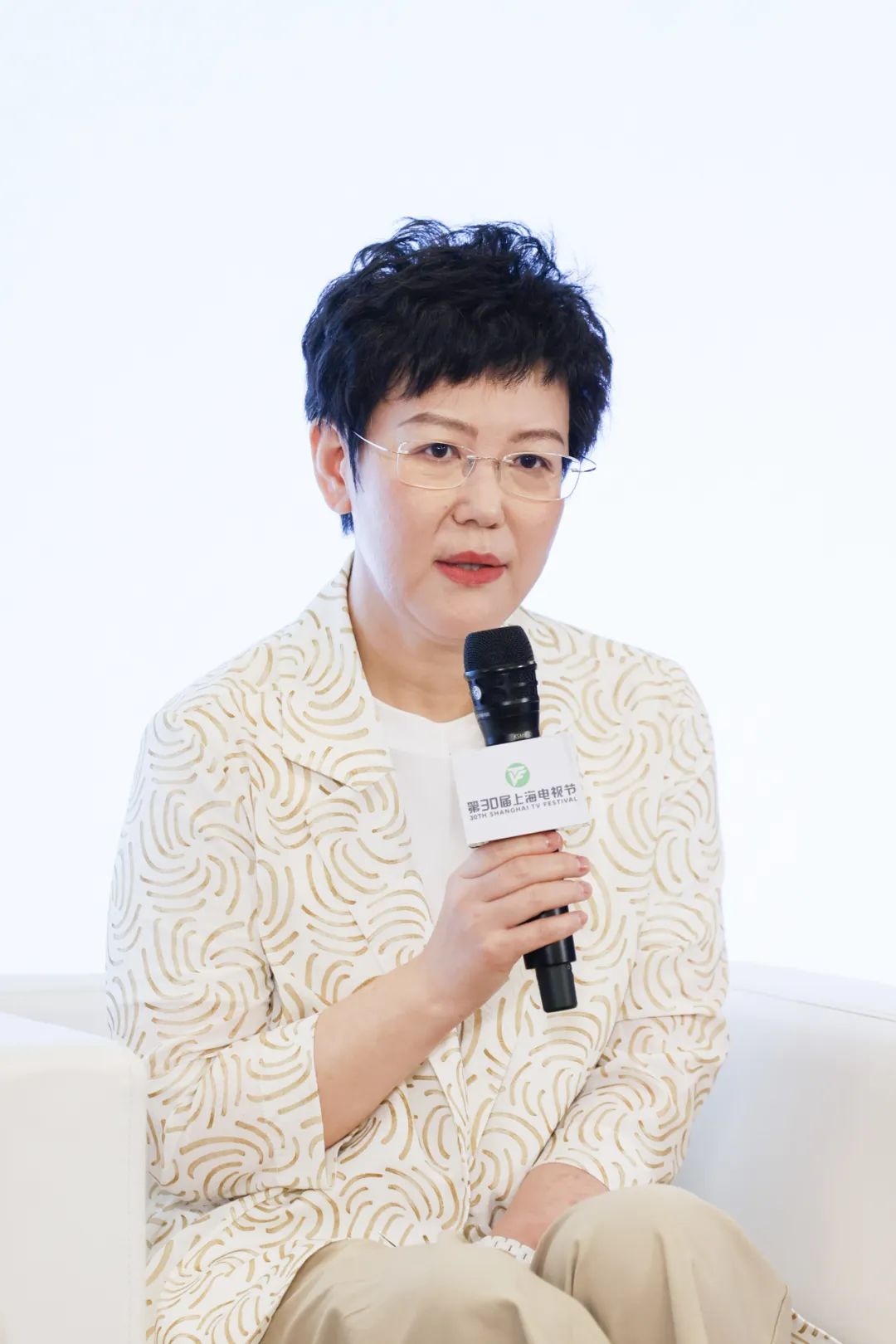
“Write more, write better” has become screenwriters’ own mandate. Gao Xuan admitted that decades in the field have made her “more cautious, not less”. Now, every step - from concept to outline to characterization - requires immersive research and interviews. Despite thorough preparation, she still verifies legal details with consultants when writing courtroom dramas. Medical shows remain her “white whale” - desperately compelling yet intimidating: “I must live the experience. Not just sketch a character or hear industry stories, but understand its ecosystem and ethics. Only then dare I write.”
Director Kang Honglei, renowned for his masterful ensemble dramas, made it clear: “I actively seek challenging, ‘mission impossible’ scripts - especially those exploring themes beyond romance, which is just one facet of real life.” He added with a grin: “If writers dare to create such bold stories, I’ll direct them for free!” Chen Baoguo instantly chimed in: “And we'll act for free!”, sparking genuine laughter across the venue.
“Real acting comes from the inside, not just good looks”
As a fellow TV professional, host Wang Liping asked the three guests a heartfelt question: “What were your moments of breakdown in your career?” - and received some truly honest, from-the-heart answers.
Chen Baoguo recalled a moment when he had to grit his teeth and push through. The crew was ready, the cameras were rolling - but he couldn’t bring himself to act. He felt unprepared, even after eight months of preparation. “I just wasn’t that person yet,” he said. “It was a feeling I can’t really describe.” Fortunately, the director understood and gave him over twenty more days to fully immerse himself. When Chen finally felt ready, he stepped out of his room, put on makeup, and walked onto set. The crew cheered - everything finally clicked into place. Reflecting on his craft, he shared two key insights. First: control. An actor must take charge of the role, not be controlled by it. Second: authenticity. Some performances come from within, others just stay on the surface. “If the role hasn’t entered your heart, you don’t even know how to stand. Acting must flow from within - acting with only your face is a trap. Let’s all hold each other to that.”
Screenwriter Gao Xuan has also hit her share of creative walls - times of self-doubt and constant rewriting. Earlier this year, she said, she faced one of her toughest blocks yet - “a wall that lasted more than two months.” “Writing can be lonely,” she shared. “We’re basically talking to ourselves the whole time. All the doubts point inward. No one else can help us through it.” But once the script is finished and she sees the director bring it to life, and the actors deliver breathtaking performances - she feels instantly healed. “It gives me the courage to hit that wall again next time,” she said. She also said she was deeply inspired by Gao Mantang’s advice: “Don’t rush with the crowd. Slow down. Tune out the noise. Originality springs from uniqueness, depth arises from serenity.”
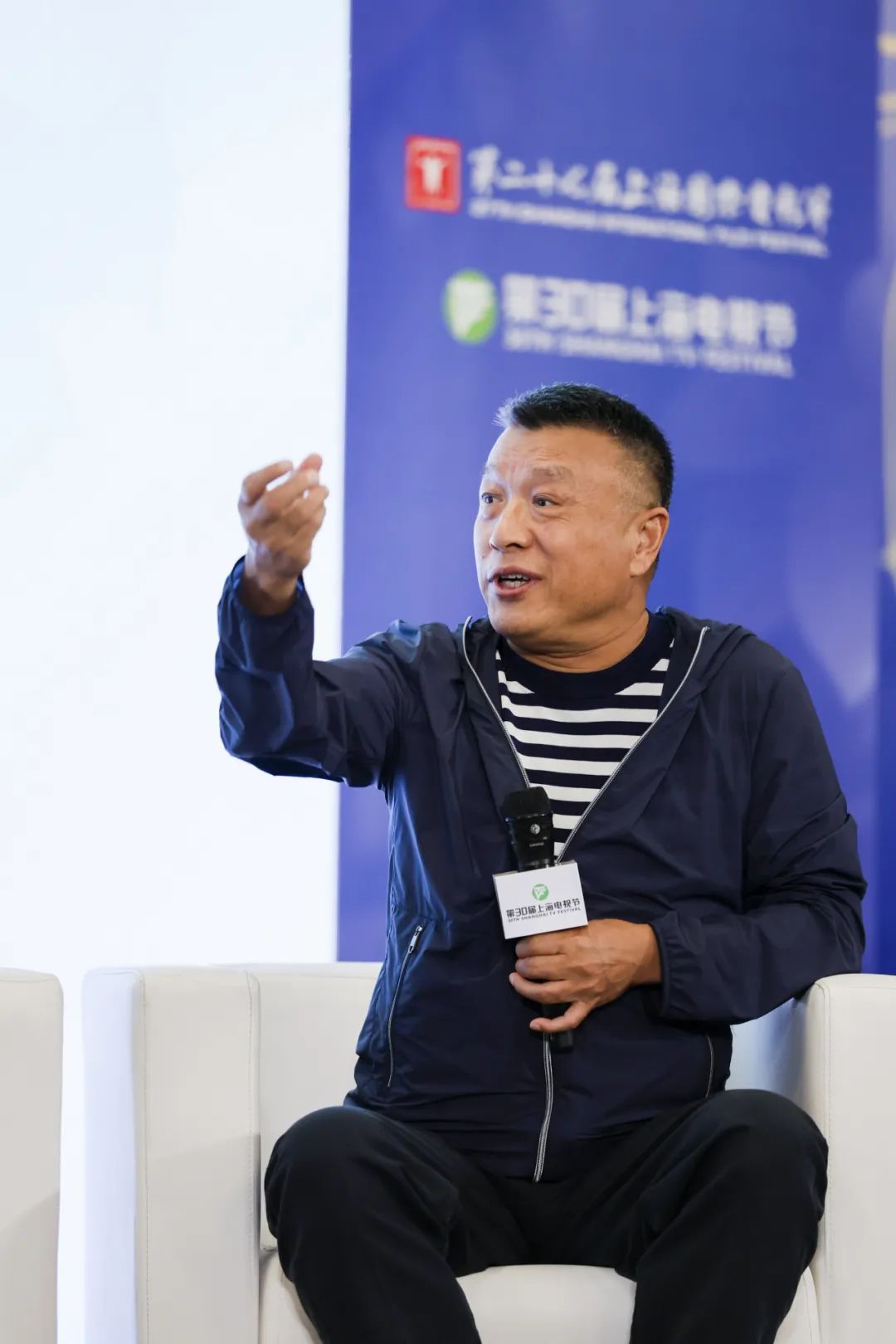
Director Kang Honglei spoke candidly about his own challenges. While he finds it natural to direct male-centered stories, he struggles with female characters. During the filming of The Moon Opera, he realized he didn’t fully understand how women speak or behave in daily life. When actresses asked “Why?” about certain directions, he often didn’t have a clear answer. So, every night, he’d call his female friends for advice, then go back to shooting the next day. He admitted that female-driven stories are rare and hard to make. “Even if a director wants to practice, there’s not much to work with. I really hope more women writers create powerful, in-depth stories.”
“There’s no such thing as a long or short series - only good or bad ones”
In recent years, the short drama market has exploded, with some creators even saying they’re shifting their focus entirely to short-form storytelling. Director Kang Honglei acknowledged that short videos have the advantages of being fast, brief, and direct - they deliver information quickly. But, he emphasized, storytelling isn’t just about blunt delivery. It’s about how compelling the story is, and whether it creates emotional resonance. “Whether it’s a long drama or a short one, if it’s made with care and leaves you with something to think about, it is by no means lengthy. But if it’s flat and flavorless from start to finish, even a short one feels boring. In the end, it all comes down to content - how engaging it is, how much attention it draws, and whether it strikes a chord with people. That’s what matters to me. Not the length, but the content.”
Screenwriter Gao Xuan, who also watches short videos and follows hit short dramas, echoed Kang’s sentiment: “There’s no such thing as long vs. short - only good vs. bad.” She stressed that short and long formats are not competitors; they can absolutely coexist. She pointed out that short dramas clearly have their strengths. “As long-form screenwriters, we can learn from them - their quick pace, intense emotions, and high-stakes plots reflect the current audience’s tastes, and that deserves respect.” However, she also noted that short dramas often lack narrative logic and fully developed characters. “I’m often shocked by how outrageous some plots are, or how characters change personalities in a snap.” In contrast, long-form dramas allow for deeper expression and more complex characters - things short dramas simply can’t replicate. That, she said, is the lasting vitality of long-form storytelling, and there’s no need for creators to feel anxious.
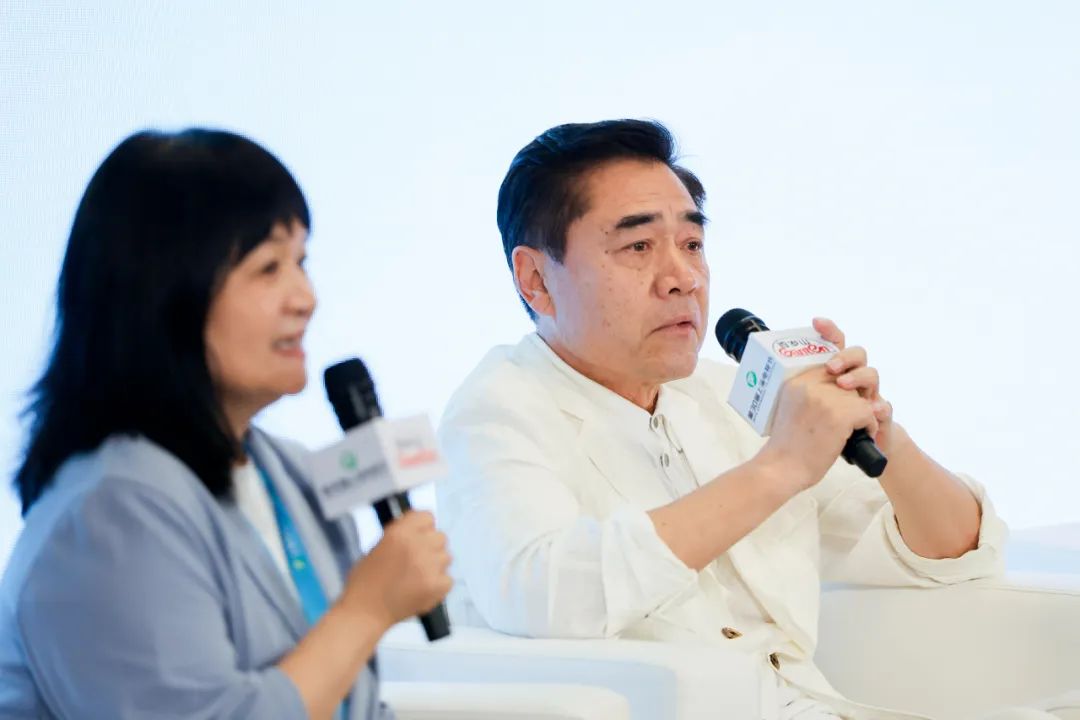
Actor Chen Baoguo admitted he’s not the target audience for short dramas - he rarely even looks at his phone. But he agrees with Gao: long-form dramas offer a kind of depth, nuance, and room for performance that short dramas still can’t match. Recalling the ensemble drama Ming Dynasty 1566, he said the cast and crew lived in a guesthouse that felt more like an office building - everyone was focused on the script, and the whole place was quiet and serious. No one brought scripts to the set - they had memorized every line. “It’s an experience I’ll never forget. We weren’t just acting - we were sparring.”



